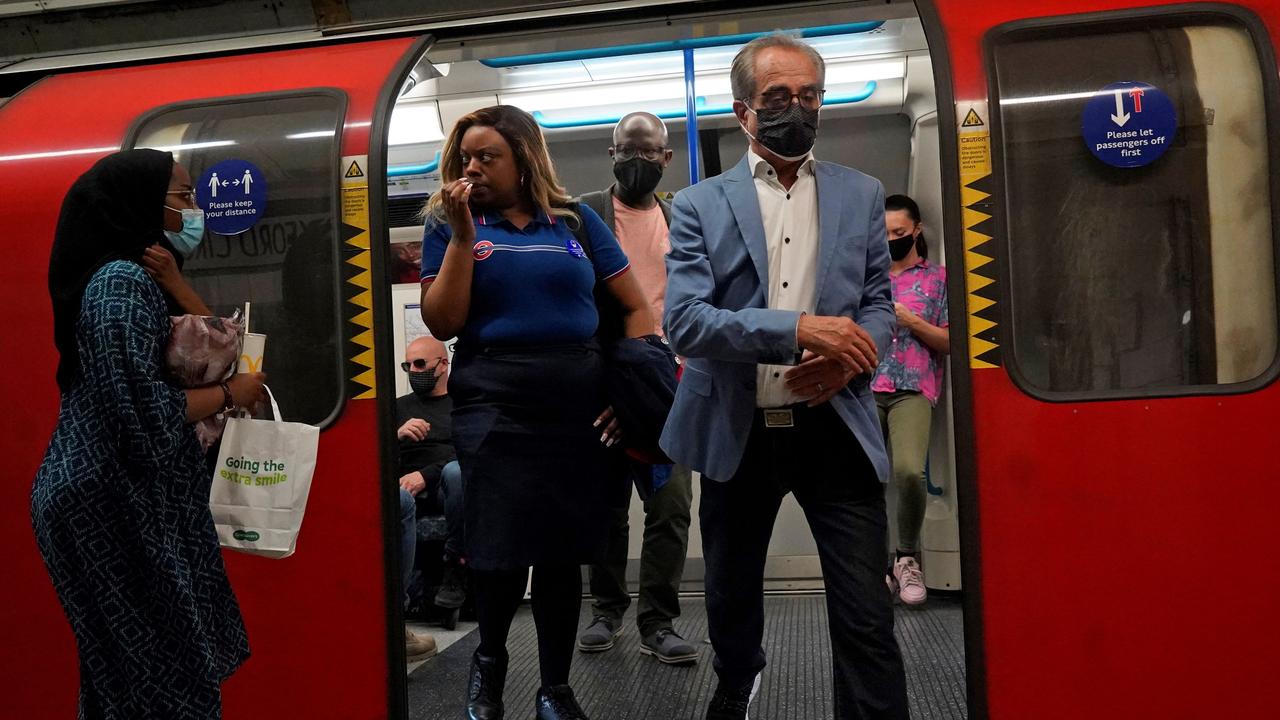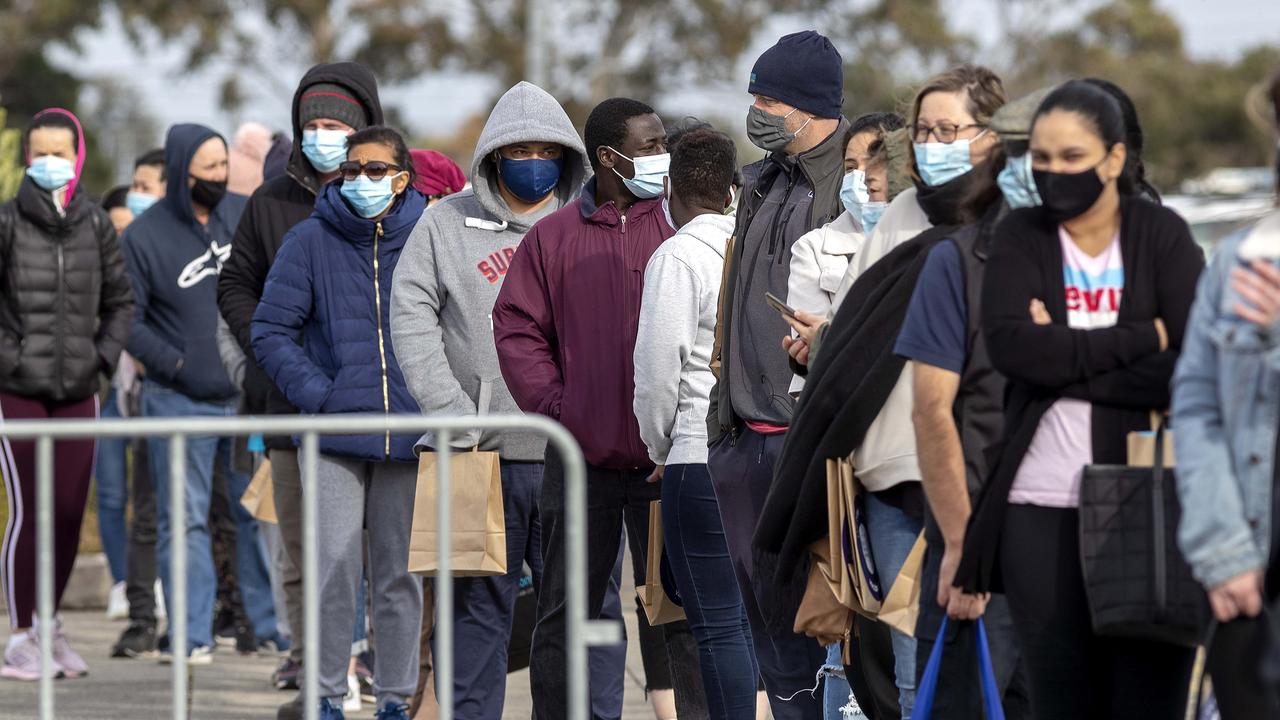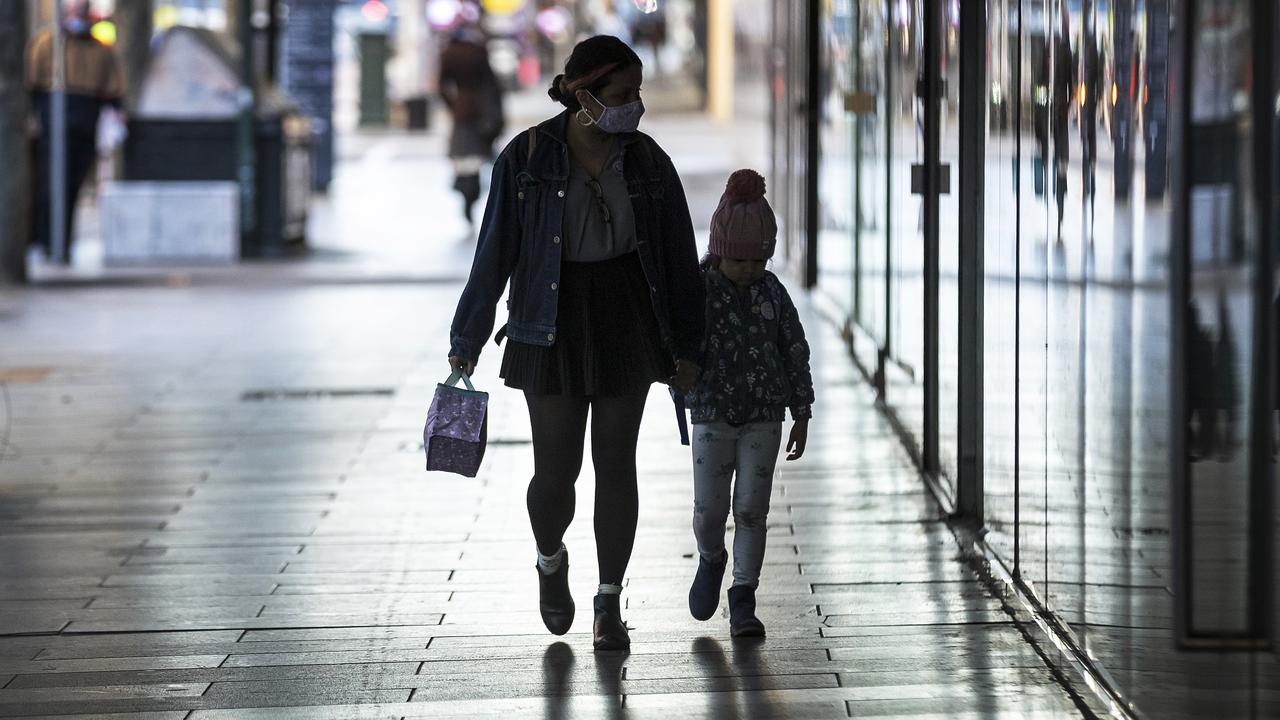Why emergence of Delta variant is a ‘game-changer’ for Covid recovery around the world
The emergence of the Delta variant in Australia and around the world has “completely changed the game” when it comes to our pandemic recovery.
The Delta variant is fast becoming the dominant coronavirus strain around the world with experts warning it has “completely changed the game” when it comes to our recovery from the pandemic.
There have been at least 15 cases of the more infectious Delta strain detected in Victoria’s West Melbourne cluster, as well as up to 85 cases of the Kappa strain, which is a closely related variant. NSW also confirmed a case of Delta on Thursday.
Both strains are more infectious than the Wuhan wild-type virus that spread through Australia last year. The Delta strain in particular is worrying experts and is likely to become the dominant strain around the world.
“It completely changes the game,” Melbourne University epidemiologist Professor Tony Blakely said of the Delta variant.
“If this variant was around last year, there is no way NSW would have controlled its outbreaks through just contact tracing,” he told news.com.au.
First identified in India, the Delta variant already now accounts for 96 per cent of cases in Britain and about 10 per cent of cases in the US. The UK this week decided to delay its re-opening by a month due to the spread of the strain.
The emergence of the variant makes vaccination even more crucial, not just to prevent people from getting seriously ill or dying, but also to slow down the spread of the virus.
“Because Delta is twice as infectious, we roughly need about half the population vaccinated for this variant to behave as the virus did last year,” Prof Blakely said.
“Vaccination is getting more and more important, not just for protecting people against mortality or severe disease, but to get herd immunity up and to damp down infectious spread.”
Having more people vaccinated will act as a “handbrake” on the spread of the virus as people will be less likely to get infected or to pass on the infection if they do get the disease.
“To successfully compete with the virus, we absolutely need to increase vaccination,” Prof Blakely said.
RELATED: Why the Delta variant is terrifying experts

Two doses of vaccine needed to fight Delta
The appearance of the Delta variant also means increased pressure on Australians to get vaccinated with at least two doses as soon as possible.
Getting two doses of the vaccine has also become more important as neither the AstraZeneca or Pfizer vaccines have been found to work well against Delta if only one dose is given.
Even after two doses are administered, the vaccines are less effective against protecting against the Delta variant than the Wuhan wild-type or the Alpha variant, which was first identified in the UK.
When it comes to the Alpha variant, both AstraZeneca and Pfizer were found to offer about 50 per cent protection against symptomatic disease four weeks after just one vaccine dose, according to figures from Public Health England published in a pre-print paper this week.
But protection against the Delta variant dropped to 36 per cent for those who got the Pfizer jab, and 30 per cent for those who got AstraZeneca.
Fortunately, protection increases substantially once people have had two shots of either vaccine.
The Pfizer jab looks to offer 88 per cent protection against symptomatic disease from the Delta variant two weeks after the second dose (compared to 94 per cent protection against the Alpha variant).
And the AstraZeneca vaccine provides 67 per cent protection after two doses (compared to 74 per cent against Alpha).
University of NSW Professor Mary-Louise McLaws, who is an adviser to the World Health Organisation (WHO), said “60 per cent is better than not having any protection”.
Both vaccines are also highly effective at preventing hospitalisation after two doses, with Pfizer 96 per cent effective, and AstraZeneca 92 per cent effective.
Both Prof McLaws and Prof Blakely believe the increased transmissibility of the variants will impact Australia’s ability to open up because more of the population will need to be vaccinated to achieve herd immunity.
Prof Blakely pointed out that Delta had taken off in the UK despite about 80 per cent of the adult population having received their first vaccine dose.
“This probably shows that you need a higher proportion of the people vaccinated in the UK,” he said.
The UK is now planning to accelerate the rollout of second doses in response to the risk posed by the Delta variant.
RELATED: Terrifying map shows Delta Covid-19 strain spread

Herd immunity will be harder to achieve
Initially it was thought herd immunity could be achieved with as little as 70 per cent of the population vaccinated but the variants have changed this.
Prof Blakely said if Australia did open up with only 70 per cent of the population vaccinated, this would probably see around 10 to 20 per cent of people infected.
“Unless you get over 80 or 90 per cent vaccinated, you will get a moderate burden of morbidity or mortality,” he said.
He said it was important to vaccinate as many people as possible, including children, and people aged over 50 years old who got the AstraZeneca jab, may also need to get a booster shot of an mRNA vaccine like Pfizer next year before Australia opens its borders, to provide some extra protection.
Prior to the emergence of the variants, Prof McLaws estimated that around 85 per cent of adults would need to be vaccinated for herd immunity.
However, she now believes children over 11 or 12 years old should be included in the vaccination program, to make it easier to achieve herd immunity.
If children were included, it would bring down the proportion of the adult population who would need to be vaccinated to about 70 per cent. However, Prof McLaws still believes it’s better to aim for around 85 per cent to be safe.
She pointed out that 98 per cent of those who died from Covid-19 were aged over 60 years old, and 94 per cent were 70 and over.
While it was crucial for people to get vaccinated, Prof McLaws said it was not very helpful for authorities to label people as “vaccine hesitant”.
RELATED: Why is herd immunity so important?

Prof McLaws said authorities had chosen to “gaslight the community and call them hesitant when most of the problem is getting time off or supply”.
She said employers should be asked to give workers half a day off to get the jab and many people may also struggle to afford public transport costs to get to vaccination hubs.
Prof McLaws said her experience with HIV showed most late adopters were just conservative when making important decisions and this should be respected. In contrast to anti-vaxxers, late adopters would get vaccinated once they saw more early adopters and middle adopters getting the jab.
“However, we may not have the luxury of time,” she said.
She said if Australia opened its borders and people had not been vaccinated early enough, they may end up getting a variant of concern and could get seriously ill.
“WHO haven’t decided yet whether Delta causes more deaths,” she said.
“They are not sure whether the deaths in India are due to the sheer number of people infected, or whether it’s because health services are overrun and they can’t get oxygen.
“People who are slower to make that decision need to understand that they don’t want to gamble with that.”




